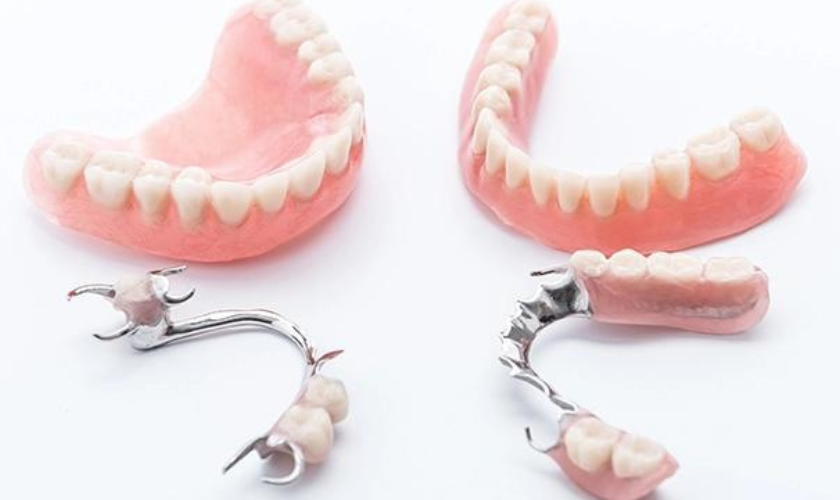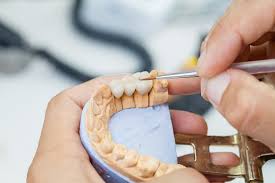Dentures are removable appliances designed to replace missing teeth and surrounding tissues, providing both aesthetic and functional restoration. These appliances are custom-made to fit your mouth, and they come as full and partial sets. Understanding the specific benefits of each type will help you have a more informed discussion with your dental professional. Here is more information about the benefits of full and partial dentures:
Benefits of Full Dentures
A full denture, also called a complete denture, is an appliance that replaces all teeth in either the upper or lower jaw. Dentists may select this option when all natural teeth are missing. They restore the ability to chew food more effectively, and they support facial muscles, preventing the sunken look.
The materials used in full dentures are chosen for durability and appearance, which gives them a natural look. While these dentures provide significant functional benefits, they require an adjustment period for the wearer to get used to speaking and eating with them. They are a comprehensive solution for total tooth loss.
Properly fitted full dentures improve appearance by re-establishing the natural contours of your face. They are crafted to look like your natural teeth, which improves your smile. Because they rest on the gums and underlying bone, the fit may need adjustments over time as the jawbone changes.
Benefits of Partial Dentures
Dentists design a partial denture to fill the gaps created by one or more missing teeth, and it attaches to your remaining natural teeth with clasps or other connectors. This appliance is a good option when some healthy, natural teeth remain in the upper or lower jaw. Unlike a full denture, a partial denture uses the surrounding teeth as anchors, which adds to its stability during use. This helps prevent other teeth from shifting position.
Partial dentures consist of replacement teeth attached to a base, which is sometimes connected by a metal framework. This structure is less bulky than a full denture, so many people find it more comfortable to wear. Since partials depend on existing teeth for support, maintaining the health of these anchor teeth is a primary focus for long-term success.
Factors to Look At
When you are exploring your options, several factors help determine the best choice for your needs. The number of missing teeth is the most direct determinant; partials are for a few missing teeth, while full dentures are for complete tooth loss. The health of your remaining teeth also plays a role, as partial dentures require healthy adjacent teeth for support. Some other points to discuss with your dentist include:
- Stability: Full dentures rely on suction and muscle control, while partials anchor to existing teeth.
- Maintenance: Both types require daily cleaning, but partials also demand care for the remaining natural teeth.
Get a Consultation for Dentures
Deciding between full and partial dentures involves a thorough evaluation of your oral health and personal needs. A professional assessment can clarify which option aligns with your situation because a dentist can examine your gums, jawbone, and any remaining teeth. Schedule a consultation with our dental team today to discuss your options and get a personalized recommendation for restoring your smile.









